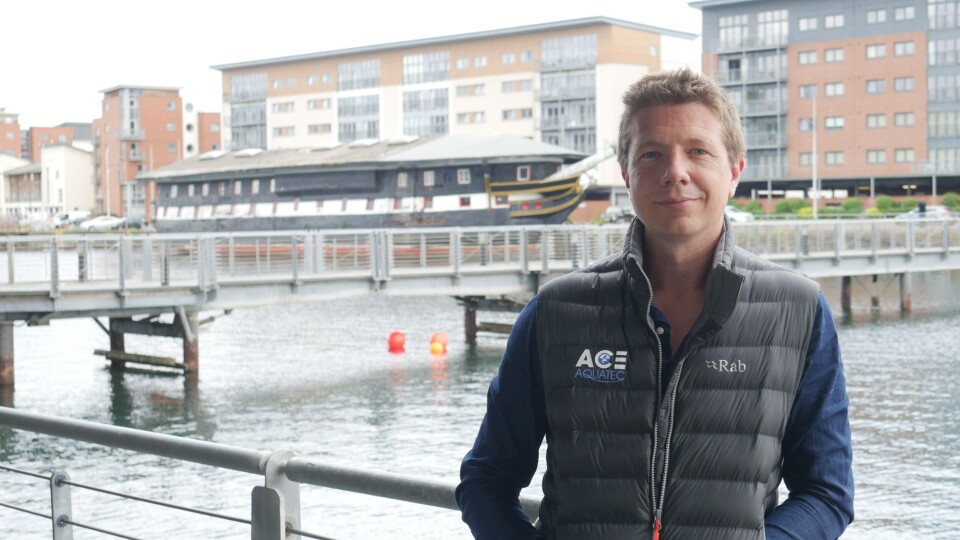
Looking back, thinking ahead: Nathan Pyne-Carter
Fish Farming Expert has asked individuals connected to the salmon farming industry about their year, and what they hope for in 2022. We continue the series with Nathan Pyne-Carter, chief executive of Dundee-based aquaculture industry and technology supplier Ace Aquatec.
2021 has been a record year for the Scottish salmon industry in terms of harvests, but more volume doesn’t necessarily mean bigger profits for farmers or suppliers. How has your company fared this year?
This year has seen the company grow to 30 individuals, with our latest hires extending our technical resources. We have expanded our team in Norway, adding Unn Eilen, who brings a fantastic background from the wild fish sector. We have transitioned this year from building systems with subcontractors to hiring internally the resources needed to develop and improve the systems we have coming to market. In partnership with Napier University, we have grown our inhouse expertise in machine learning and AI (artificial intelligence), accelerating our work in underwater biomass as well as robotic bleeding in the harvest station.
We’ve been woking hard trialling some new products including seal tracking using machine vision to supplement our deterrent systems providing the only triggered solution to predation on the market, and our new pumping solution which will avoid mechanical contact of fish with propellers or vacuums – both of which are receiving strong interest from our international customers.
As we move towards our next fund raise in 2022 we will be increasing our local workforce in Dundee, taking on premises at the Michelin Innovation Park from where all sea lice, stunners, pumps, robotic bleeders will be built. We are very grateful to have had the excellent support of our partners at Hendrix Genetics this year who have supported validation of our biomass systems as well as our smolt culling product.
What was the most significant event of 2021 for Ace Aquatec?
A key partnership has been formed with New Zealand King Salmon allowing us to tackle the issue of excess smolt utility. Until now, smolt producers who have grown too many smolts than they have customer uptake for have used anaesthetics to kill them. Using chemicals means these fish end up in landfill. With this partnership, New Zealand King has actively been seeking smolt producers around the world, and introducing our technology to enable them to buy the excess and use it in their premium pet food business and fish oils. This is a great example of business collaboration achieving a win win: recycling of a rich protein source, reductions in costs, and a greener business at the end with a fantastic product which customers want. We are very honoured to be working with such a forward thinking partner whose values around sustainability are in line with ours.
What are the most significant challenges and opportunities for the salmon farming industry in the coming year?
Salmon farming is challenged by a number of issues which a warming world continues to exacerbate. Sea lice is one of those, but farmers have always recognised that an array of solutions need to be brought to bear on the problem if it is to be controlled. Trials for our system, which will provide farmers with a lower cost, high welfare solution to the problem of lice removal, have been going really well and we hope to be able to share some exciting news around this in the new year.
Across the board, AI and digitisation will continue to provide farms with the opportunities to improve efficiencies, guarantee fish welfare and provide reporting to internal and external stakeholders. It is an exciting space to work in with huge growth potential and significant investor interest, and we are very grateful for all the customers and partners who work with us to bring such cutting edge solutions to the market.
Tomorrow: Neil Manchester of steelhead trout producer Kames Fish Farming.






















































